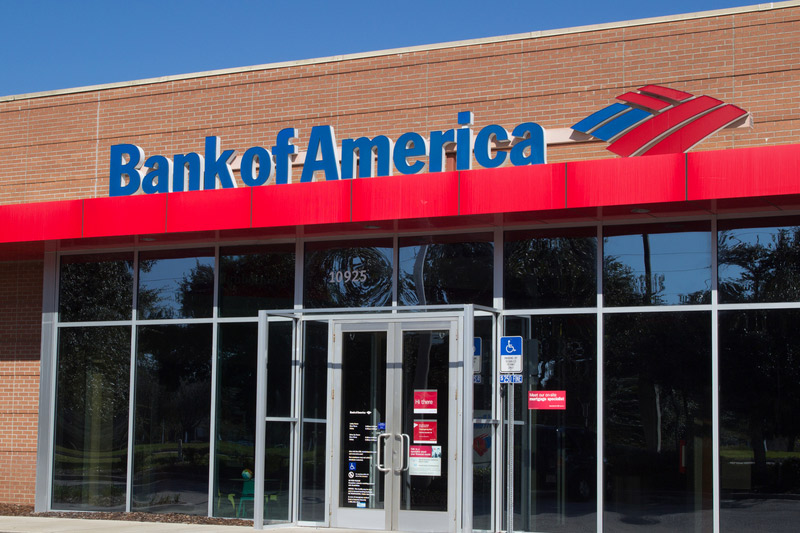Table of Contents
In a surprising move, Berkshire Hathaway Inc. (NYSE), led by the renowned investor Warren E. Buffett, has divested a significant portion of its holdings in Bank of America Corp (NYSE). Over a three-day period from July 22 to July 24, Berkshire sold shares totaling approximately $802.49 million. This article delves into the details of the transactions, the implications for both companies, and the broader market context.
The Transaction Details
Sale Breakdown
The sale involved millions of shares sold at prices ranging from $42.08 to $42.78. Specifically:
- July 22: Shares sold at an average price of $42.4056.
- July 23: Shares sold at an average price of $42.5643.
- July 24: Shares sold at an average price of $42.3889.
Remaining Holdings
Despite this substantial sell-off, Berkshire Hathaway still retains a significant stake in Bank of America. As of July 24, Berkshire’s holdings amounted to 980,061,561 shares.
Ownership Structure
Berkshire Hathaway’s shares in Bank of America are held through its subsidiaries, including notable names like GEICO and the National Indemnity Company. This complex ownership structure allows Berkshire to exert considerable influence over the bank.
Strategic Implications
Portfolio Adjustments
This recent divestment is part of Berkshire Hathaway’s ongoing strategy to continually evaluate and adjust its investment positions. This move signals a significant shift in their portfolio, prompting shareholders and potential investors to closely monitor the market’s reaction.

Impact on Bank of America
Bank of America remains a strong entity despite this divestment. The bank has recently seen positive developments, including:
- Promotion of Kevin Brunner: Elevated to head of technology, media, and telecommunications (TMT) investment banking.
- Stronger-than-Expected Profits: Reported in its second-quarter results.
Market Analysis
Downgrades and Upgrades
- Phillip Securities: Downgraded Bank of America to a Neutral rating, despite raising its FY24 earnings estimate by 8%.
- BMO Capital Markets: Increased its price target for the bank, citing robust capital markets-driven revenues.
Economic Context
The banking sector is currently navigating a challenging economic landscape characterized by:
- Pressure from deposit costs.
- Federal Reserve’s tightening measures.
Despite these challenges, Bank of America has shown resilience through its diversified business model and robust earnings.
InvestingPro Insights
Financial Performance
Investors should consider the following key metrics from InvestingPro data:
- Market Capitalization: $328.25 billion.
- P/E Ratio: 14.77 (slightly adjusted to 14.37 as of Q2 2024).
- Operating Income Margin: 27.95%.
- Revenue Growth: -3.41% over the last twelve months as of Q2 2024.
Dividend Commitment
Bank of America has a strong commitment to shareholder returns:
- Dividend History: Raised dividends for 10 consecutive years, with payments maintained for 54 years.
- Current Dividend Yield: 2.28%.
- Dividend Growth: 9.09% over the last twelve months.
Market Sentiment
The bank has experienced a positive market sentiment, evidenced by:
- Six-Month Price Total Return: 28.02%.
- Analyst Optimism: 8 analysts have revised their earnings upwards for the upcoming period.
Is BAC Stock a Buy or a Sell?
Navigating the stock market can be daunting, especially with the myriad of conflicting analyses and opinions. However, cutting through the noise to find the fair value of Bank of America (BAC) stock is crucial. Utilizing AI and machine learning for stock predictions offers a more precise and reliable method compared to traditional tools. These advanced systems predict a stock’s performance relative to major indices like the S&P 500, assess prediction confidence levels, and estimate potential downside risks.
Bottom Line
For investors, understanding the fair value of BAC is essential. By leveraging modern financial tools, one can make informed decisions amidst the market’s volatility.
Read More: Nearfield Instruments Funding Boosts Semiconductor Innovation
Conclusion
Berkshire Hathaway’s recent divestment of over $800 million in Bank of America stock is a significant event with implications for both companies and the broader market. Despite this move, Bank of America remains strong, backed by a robust financial performance and strategic developments. For investors, staying informed and utilizing advanced financial tools can help navigate the complexities of the stock market.
Read More: Remembering Dickey Betts: Allman Brothers Co-Founder and Southern Rock
FAQs
1. Why did Berkshire Hathaway sell Bank of America stock?
- Berkshire Hathaway sold a portion of its Bank of America stock as part of its ongoing portfolio adjustments to optimize investment positions.
2. How much Bank of America stock does Berkshire Hathaway still hold?
- As of July 24, Berkshire Hathaway holds 980,061,561 shares of Bank of America.
3. What impact will this sale have on Bank of America?
- While the sale reduces Berkshire Hathaway’s stake, Bank of America remains financially robust and continues to see positive developments and strong earnings.
4. What are the key financial metrics for Bank of America?
- Key metrics include a market capitalization of $328.25 billion, a P/E ratio of 14.77, and an operating income margin of 27.95%.
5. Is Bank of America a good investment?
- Bank of America has demonstrated resilience and strong financial performance. However, investors should consider using advanced financial tools to assess the stock’s fair value and make informed decisions.

[…] Read More: Berkshire Hathaway Sells $800 Million in Bank of America Stock […]
[…] Read More: Berkshire Hathaway Sells $800 Million in Bank of America Stock […]